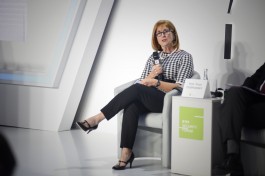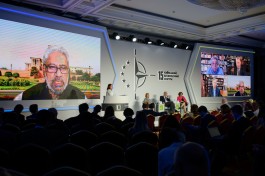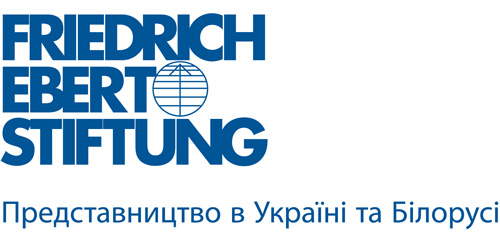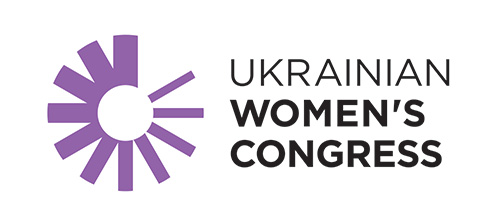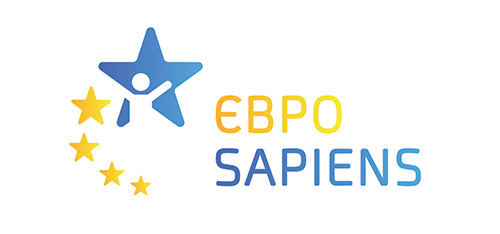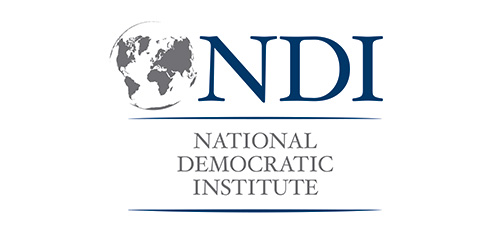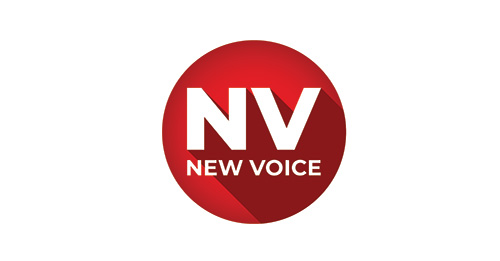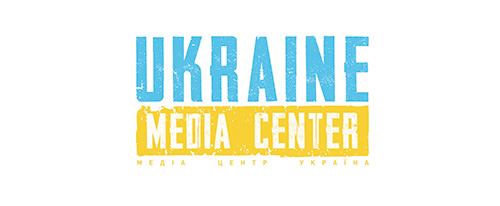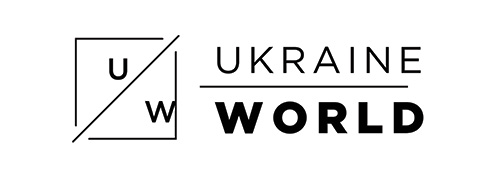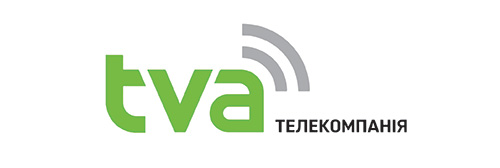Ivanna Klympush-Tsintsadze: The West should Set Line for Kremlin Regime, which shall not be Crossed
“The Case of Sergei Skripal” has become a kind of final Rubicon for the Western democracies, which realized that the Kremlin regime had no internal line which it could not cross. And such boundary should be installed from the outside.
This opinion was expressed by Ivanna Klympush-Tsintsadze, the Vice Prime Minister for European and Euro-Atlantic Integration of Ukraine, during the 11th Kyiv Security Forum in Kyiv.
“The Case of Sergei Skripal” has become a kind of final Rubicon for the Western democracies, and afterward it is no longer possible to cherish illusions about Russia’s intentions and the means it uses in the struggle against the West. It has become apparent to everyone that the Kremlin regime had no internal line which it could not cross. And such boundary should be installed from the outside,” she said.
The Vice Prime Minister added that for Ukraine, this fact was evident four years ago: “Since the mechanism of a systematic offensive on the free world was launched by the annexation of the Crimea and the beginning of aggression in Donbas.”
She stressed that today “there is virtually no major democracy in the world that would not have been affected by Russian attack in the recent years”. “It is a war against the basic values and principles of democracy, an attempt to cast doubt on the democratic type of decision-making on a global scale,” I.Klympush-Tsintsadze added.
The world has found itself on the verge of a new global confrontation between freedom and non-freedom, democracy and despotism, progress and archaism. “It seems that this confrontation is inevitable, and it will not be possible to avoid it,” she said, referring to the growing threat from Russia’s aggressive policy.
Therefore, in the opinion of the Vice Prime Minister, in order to respond to these challenges, “the civilized world should be guided by three basic matters – I would call it “three P” [in Ukrainian] which should define our way of behavior in today’s world – Сountering, Rethinking, Resistance”.
She believes that an agreement with Russia would not succeed “until there is a complete policy change”. That is why Russia will for a long time remain a threat to global democracy, the global world, and global peace.
Although the Kremlin will not be able due to the lack of the necessary potential to overthrow global democracy by military force, economically or politically, it will “have enough aggression, means, and tools to break the socio-political order, even in the strongest democracies and destabilize the western world from the inside,”.
“Therefore, it is time to make democracy strong again,” she stressed.
First of all, it means the rethinking of the NATO’s role and functions, renouncing the narratives that the Kremlin and other actors impose, and the economic strengthening of partners and reinforcement of mutual assistance within the democratic world.
“Strengthening the economic potential of democracy and the economic unity of the free world should go along with the rejection of the practice of business as usual with dictatorial regimes that constitute a threat to democracy,” the Vice Prime Minister stressed, referring to the North Stream 2, which violates the integrity of the democratic position and makes the world democracy much more vulnerable.
The new unity of democracy means close and broad cooperation in the areas of protection against new types of threats. “The aggressor is very well aware and afraid of the consolidated response of democracies,” the Vice Prime Minister noted.
For reference:
The annual international event Kyiv Security Forum was launched by the Arseniy Yatsenyuk Foundation Open Ukraine in 2007 as a platform for high-level discussions on the current issues in Europe and the Black Sea region. The Forum aims at increasing security cooperation between the EU and the Black Sea region, raising awareness about regional developments among key regional players, promoting the role of independent and non-governmental actors in setting the security agenda in Europe.
The event is being held with the support of NATO Information and Documentation Center in Ukraine, the German Marshall Fund, The Victor Pinchuk Foundation, The Royal Institute of International Relations, Chatham House (UK), and The Regional Representative Office of the Friedrich Ebert Foundation in Ukraine.


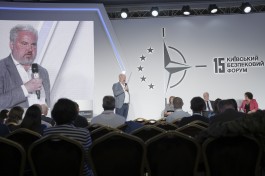
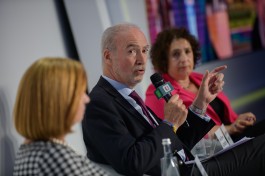
-tmb-265x176.jpeg)
